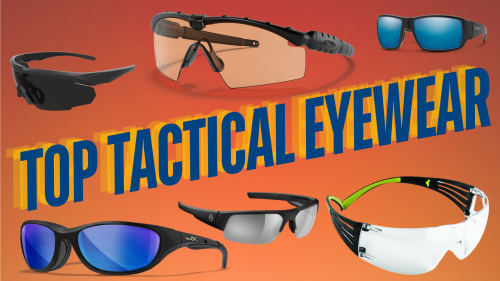BREAKING NEWS
The Medically Vulnerable People shelter provides on-site health care, accessible housing and case management for unhoused seniors, a growing population nationwide
Matthew Paille, a former EMT who joined Cheshire Medical Center’s ICU during the height of the pandemic, received the Hubbard Nursing Award for excellence in patient care
After 35 years flying for American Airlines, Mike Sterry is preparing for retirement and a deeper commitment to the Lakeside Quick Response Unit
Kansas City Station 10 firefighters’ Facebook post goes viral ahead of a winter storm, poking fun at risky travel excuses, including nail appointments, while urging residents to stay off icy roads
FEMA has activated its National Response Coordination Center and deployed response teams and resources to Texas, Virginia, Georgia and Pennsylvania
EXCLUSIVES
SPECIAL REPORTS
UPCOMING & ON-DEMAND EVENTS
Mission critical communications networks and Wireless WAN work in concert to enable first responders to make informed decisions and act quickly
How technological advances influence PSAPs and ECCs and redefine the public safety ecosystem
Join this discussion with real-life spouses Mike Taigman and Sascha Liebowitz, on how to repair burnout by reconnecting with loved ones and mitigating the impact of the job on your relationships.
Taking a deeper look into the role of technology in public safety, our presenters offer insights into current technology use, and how it can save lives.
Join us for a discussion of the 2021 EMS Trend Report’s findings and strategies to combat the major issues facing EMS
You wouldn’t make cookies with just a fraction of the ingredients, why would you make decisions without all the data?
Learn how mental health support programs can alleviate stress in the workplace
Relationships and trust are the foundation of partnerships and contracts
Find out the latest on how your agency can access ARP and other funding opportunities, as well as guidance around proposals, tactics and strategies
Data collected throughout the first half of the year help agencies and departments improve performance and service
Best practices for infection control before, during and after assessment, treatment and transport of 3 common EMS patient scenarios
Explore ongoing research into fatigue and strategies to both prevent and manage it
INDUSTRY INSIGHTS
Small changes to how EMS approaches airway management and ventilation can make big differences in OHCA outcomes
Empower personnel to step in early — before issues escalate
The federal government’s 43-day interruption underscored the importance of having a robust billing solution
Learn the four data fields dispatch must get right for stronger financial performance
OFF DUTY
Discover top pet care solutions that keep your pets safe and comfortable while you’re on duty
You’ve got the requisite emergency response training, but do you have the knowledge to survive a lawsuit?
Where to buy EMS pants that can stand up to the demands of the job
Five considerations for patient assessment, scene safety and patient handoff when responding off-duty
Laysha Ward teaches public safety leaders how to reframe life experiences into leadership superpowers, develop connection currency and align work-life goals for sustainable success
Explore top self-defense tools like TASERs, pepper spray and personal alarms. Learn how to choose, use, and store them safely and legally
Rapid decision-making and risk assessment skills make EMS professionals a perfect fit for high-paying safety leadership roles
EMS Products
Follow this expert guide to cleaning, conditioning and polishing your boots, belts and gear the right way
The benefits are numerous, but the startup can be daunting; become a meal-prepping pro with these top-rated solutions
Read the first five practical, no-nonsense strategies to help you stay sharp, resilient, and in control — no matter what the job throws at you
PRODUCT RESEARCH CATEGORIES
The EMS1 ePCR – Electronic Patient Care Reporting product category features information and resources for researching ePCR products, including solutions that allow you to collect patient information and care details electronically.
The Community Paramedicine Software product category features information, product listings and resources for researching EMS Community Paramedicine Software solutions, including billing, field data and scheduling software as well as computer aided dispatch (CAD) and electronic patient care reporting (ePCR).
Training equipment and supplies are essential for preparing EMS providers to perform critical skills safely and effectively. This topic encompasses manikins, simulation devices, task trainers, and consumable materials used in skills labs and continuing education programs. Quality training tools support realistic scenarios, hands-on practice, and competency-based assessments. Keeping training equipment current and well-maintained ensures providers are ready for real-world emergencies. For tools used during actual patient care, see Diagnostic Equipment. Explore the articles in this topic to learn how training resources support EMS education and readiness.
Diagnostic equipment enables EMS providers to assess patient conditions quickly and accurately in the field. This topic encompasses various tools, including pulse oximeters, ECG monitors, capnography devices, glucometers, and blood pressure monitors. Effective use of diagnostic equipment supports clinical decision-making, guides treatment, and improves patient outcomes. EMS professionals must stay informed about new technologies, device features, and maintenance requirements to ensure optimal performance. For related tools used during transport and care, see Ambulance Disposable Supplies. Browse the articles in this topic to learn how diagnostic equipment supports prehospital assessment and care delivery.
The EMS1 Inventory & Asset Management Software product category features information, product listings and resources for researching Inventory Management.
The EMS1 Mobile Computers product category features products and information for researching EMS mobile computers and equipment, covering a variety of mobile computers used for managing data in the field and on the move.
The EMS1 Radios product category features products and information for researching EMS radios, covering communications equipment, communications interoperability, wireless handsets and EMS radio-related equipment.
The EMS1 Bleeding Control product category features products and information for researching Bleeding Control products by EMS personnel to aid in their assessment and treatment of patients in the prehospital environment.
The EMS1 Medical Equipment & Supplies category features products and information for researching EMS medical products, including a variety of ambulance supplies, patient handling, pediatric equipment and other EMS-related medical supplies.
















































